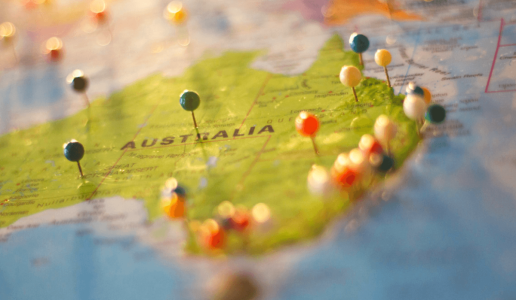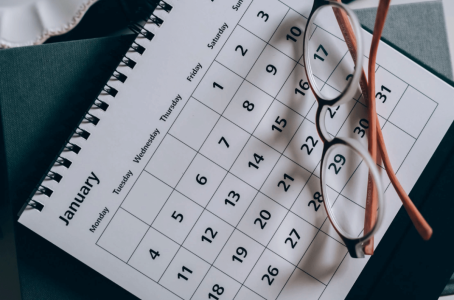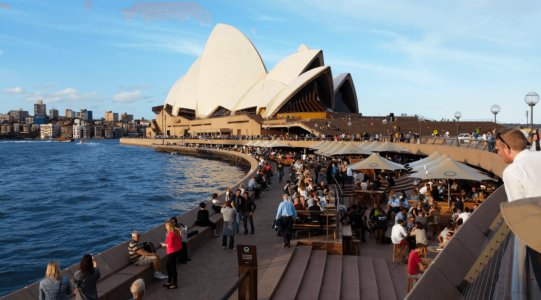Recognising and celebrating diversity: Experts propose two more public holidays in Australia
- Replies 22
While Australians may be renowned for their love of public holidays, the truth is that our annual allotment of days off may not be as plentiful as one might assume.
In comparison to other nations in the Indo-Pacific region, such as Malaysia, Singapore, and Indonesia, Australia falls short in terms of the number of public holidays.
As of today, Australia celebrates a host of national public holidays, including the start of the new year with New Year's Day, the patriotic Australia Day, the religious observances of Good Friday and Easter Monday, the commemorative Anzac Day, and the festive season's Christmas Day and Boxing Day.
All other public holidays, such as the King's Birthday and Labour Day, are declared by individual state and territory governments.
Check yours here:

But it's not just the quantity of holidays that sets these countries apart; it's the diversity of cultural celebrations that are marked by these holidays. From Buddha's birthday to Diwali, Lunar New Year, Eid, and Christmas Day, these nations proudly celebrate a wide array of traditions.
Australia, on the other hand, primarily (and somewhat understandably, considering the nation’s heritage) recognises Western European Christian holidays.
According to the nonpartisan international policy think tank, The Lowy Institute, it may be time for Australia to broaden the types of holidays and traditions they recognise and celebrate.
The institute has put forward a bold proposal, suggesting that by adding two additional public holidays, Australia could begin to reshape its image as a 'Western outpost on the edge of the Indo-Pacific' and send a powerful message to the world that we are a welcoming, inclusive, and culturally diverse society.
'In an era where concerns about illiberalism and intolerance across the globe are growing, it would be a powerful symbolic statement from a Western liberal democracy,' the institute said.

Not only would more public holidays help to promote a sense of community and belonging, but they would also serve as a powerful symbol of cultural pluralism, fostering appreciation and understanding of different beliefs and practices rather than division.
The 2021 Census showed that many Australians have a migrant background or are the children of migrants and that 1 in 5 people speak a language other than English at home.
These statistics, along with the estimated 70 per cent of people who want to learn more about different ethnic and cultural groups in the country, as reported by the Scanlon Foundation's 2022 report, support the institute's idea of adding more public holidays to promote cultural diversity and understanding in Australia.

Australia is a melting pot of cultures, with one in four people having a non-European background. This means that traditional public holidays may not always align with or celebrate the cultures and traditions of many Australians.
This is particularly relevant for Australia's large Asian population, with millions of people of Chinese, Indian, Filipino, and Korean descent, to name a few, calling this country their home. Additionally, there is a significant Muslim population, along with communities of Catholics, Hindus, and Buddhists.

Given the rich tapestry of cultures, religions, and customs in Australia, it's not surprising that many people feel passionate about adding more public holidays to mark special days for different ethnic and cultural groups.
This would not only make all Australians feel included and respected but also help to normalise cultural diversity in the country.
So, what do you think, members? Are you in favour of Australia having more public holidays?
Do you believe that an extra day off work is always a win, or do you think we have enough as it is? We're eager to hear your thoughts on the matter - don't hesitate to share your views in the comments below!
As a friendly reminder, we would like to respectfully request that all members keep in mind that our community is comprised of people who come from a variety of different places, cultures, and ways of life.
We invite you to express your opinions on the matter, but we do ask that you do it in a way that is respectful and courteous to others.
In comparison to other nations in the Indo-Pacific region, such as Malaysia, Singapore, and Indonesia, Australia falls short in terms of the number of public holidays.
- India has 21 holidays throughout the year
- Malaysia has 18 to 20 holidays, depending on the state
- The Philippines has 18 holidays
- Indonesia has 16 holidays
- Thailand has 16 holidays
As of today, Australia celebrates a host of national public holidays, including the start of the new year with New Year's Day, the patriotic Australia Day, the religious observances of Good Friday and Easter Monday, the commemorative Anzac Day, and the festive season's Christmas Day and Boxing Day.
All other public holidays, such as the King's Birthday and Labour Day, are declared by individual state and territory governments.
Check yours here:

Australians expressed a great deal of support for the idea of having more public holidays in their country. Credit: Pexels/Catarina Sousa.
But it's not just the quantity of holidays that sets these countries apart; it's the diversity of cultural celebrations that are marked by these holidays. From Buddha's birthday to Diwali, Lunar New Year, Eid, and Christmas Day, these nations proudly celebrate a wide array of traditions.
Australia, on the other hand, primarily (and somewhat understandably, considering the nation’s heritage) recognises Western European Christian holidays.
According to the nonpartisan international policy think tank, The Lowy Institute, it may be time for Australia to broaden the types of holidays and traditions they recognise and celebrate.
The institute has put forward a bold proposal, suggesting that by adding two additional public holidays, Australia could begin to reshape its image as a 'Western outpost on the edge of the Indo-Pacific' and send a powerful message to the world that we are a welcoming, inclusive, and culturally diverse society.
'In an era where concerns about illiberalism and intolerance across the globe are growing, it would be a powerful symbolic statement from a Western liberal democracy,' the institute said.

Experts argue that global perceptions of Australia could be changed if the calendar was amended to reflect a more 'multi-ethnic and multicultural state'. Credit: Pexels/Leeloo Thefirst.
Not only would more public holidays help to promote a sense of community and belonging, but they would also serve as a powerful symbol of cultural pluralism, fostering appreciation and understanding of different beliefs and practices rather than division.
The 2021 Census showed that many Australians have a migrant background or are the children of migrants and that 1 in 5 people speak a language other than English at home.
These statistics, along with the estimated 70 per cent of people who want to learn more about different ethnic and cultural groups in the country, as reported by the Scanlon Foundation's 2022 report, support the institute's idea of adding more public holidays to promote cultural diversity and understanding in Australia.
Key Takeaways
- Australia is playing catch-up with other countries in the Indo-Pacific, like Malaysia, Singapore and Indonesia, who have more public holidays.
- More public holidays in Australia would not only help to celebrate other traditions but would also demonstrate the nation's commitment to multiculturalism and respect for different beliefs.
- Adding public holidays would also create a greater sense of unity in Australia by encouraging a greater understanding of different beliefs and practices and by helping to normalise cultural pluralism in the country.
This is particularly relevant for Australia's large Asian population, with millions of people of Chinese, Indian, Filipino, and Korean descent, to name a few, calling this country their home. Additionally, there is a significant Muslim population, along with communities of Catholics, Hindus, and Buddhists.

Australia has one of the most ethnically and racially diverse populations in the world. Credit: Unsplash/Nico Smit.
Given the rich tapestry of cultures, religions, and customs in Australia, it's not surprising that many people feel passionate about adding more public holidays to mark special days for different ethnic and cultural groups.
This would not only make all Australians feel included and respected but also help to normalise cultural diversity in the country.
So, what do you think, members? Are you in favour of Australia having more public holidays?
Do you believe that an extra day off work is always a win, or do you think we have enough as it is? We're eager to hear your thoughts on the matter - don't hesitate to share your views in the comments below!
As a friendly reminder, we would like to respectfully request that all members keep in mind that our community is comprised of people who come from a variety of different places, cultures, and ways of life.
We invite you to express your opinions on the matter, but we do ask that you do it in a way that is respectful and courteous to others.







